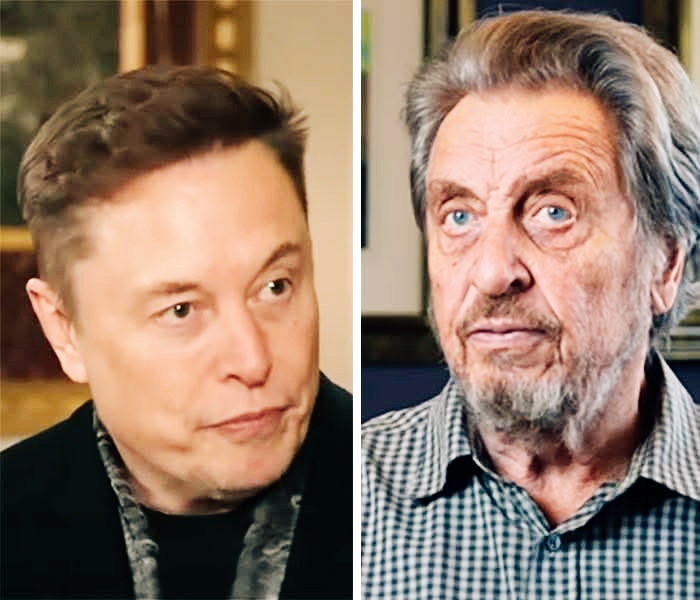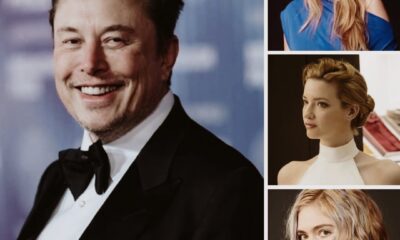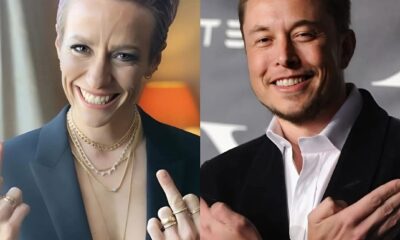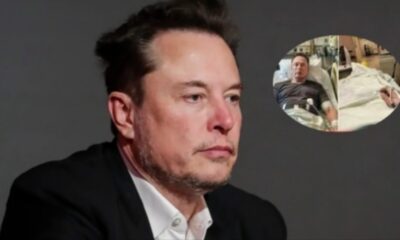CELEBRITY
Elon Musk’s Father Errol Denies His Son is Racist, Says He Was Friends With Their “Black Servants” in South Africa.

**Elon Musk’s Father, Errol, Denies Claims of Racism, Defends His Relationship with “Black Servants” in South Africa**
In a recent statement that has sparked considerable debate, Errol Musk, the father of tech billionaire Elon Musk, has publicly defended his son against accusations of racism. The comments were made amid growing scrutiny over Elon Musk’s public statements and actions that some have deemed controversial, particularly concerning race relations.
Errol Musk, who is a prominent figure in his own right, emphasized his son’s respectful and close relationships with individuals of different races during their time in South Africa. He pointed to the Musk family’s interactions with their black servants as evidence of Elon’s non-racist character, arguing that Elon was not only friendly but also on good terms with the black individuals who worked for the family.
### Errol Musk’s Defense of His Son
Errol Musk, who raised his children in South Africa, was responding to claims that Elon had shown signs of prejudice or disdain towards Black people, especially considering the country’s historical context of apartheid. The elder Musk dismissed these allegations, arguing that Elon had always been well-meaning and did not harbor any racial animosity.
According to Errol, their family employed several black servants over the years, and Elon had built meaningful relationships with them. “Elon was friends with our black servants,” Errol stated in an interview. “They weren’t just employees to him. They were people he respected.”
This statement highlights Errol Musk’s view of how individuals, regardless of race, should be treated with dignity and respect. His assertion is that Elon, from a young age, did not view people through the lens of race but instead valued them for their individual qualities and contributions.
### Context of South Africa During the Musk Family’s Time There
It’s important to consider the socio-political climate of South Africa during the Musk family’s residence. The country was under apartheid from 1948 to 1994, a system of institutionalized racial segregation that enforced severe discrimination against black South Africans. Though apartheid officially ended more than two decades ago, its legacies continue to shape societal divisions, and racial tensions remain a sensitive topic.
Errol Musk’s comments may have been an attempt to shed light on Elon Musk’s upbringing in this fraught environment and to clarify any misconceptions regarding his son’s character. In Errol’s view, treating people fairly and with kindness, regardless of their race, was a principle that Elon absorbed growing up.
### A History of Public Controversies Surrounding Elon Musk
Elon Musk, the CEO of Tesla and SpaceX, has long been a figure of public fascination. Known for his unorthodox business practices, groundbreaking innovations, and often controversial social media presence, Musk has drawn both admiration and criticism. His tweets, in particular, have sparked a number of debates, some of which have included racial undertones.
In 2020, for example, Musk made headlines for his support of the #FreeBritney movement, followed by comments that some critics interpreted as racially insensitive. Additionally, Musk’s handling of issues related to diversity within his companies has occasionally drawn scrutiny, with some employees reporting challenges related to inclusivity and equal representation.
Despite these controversies, Elon Musk has publicly stated that he believes in equal treatment for all people and has taken steps to address diversity within his companies. For instance, Tesla has faced lawsuits over racial discrimination claims, yet Musk maintains that his companies are committed to promoting diversity and equality.
### The Impact of Errol Musk’s Comments
Errol Musk’s defense of his son may serve to lessen some of the public criticisms leveled at Elon. However, his comments also draw attention to the complicated history of race relations in South Africa and the ongoing conversation about systemic racism, both in South Africa and worldwide. Critics might argue that while Errol’s comments are well-intentioned, they oversimplify the complexities of racial issues, particularly in a world where prejudice often goes beyond personal relationships.
At the same time, there are those who might view Errol’s remarks as a necessary clarification—a reminder that it is important to examine both a person’s actions and their intentions. Whether or not Elon Musk’s upbringing in South Africa, with its history of racial inequality, will continue to play a role in the public’s perception of him remains to be seen.
### Conclusion
Errol Musk’s recent statement defending his son’s character and denying claims of racism offers an insight into the Musk family’s complex relationship with race and class. While his words may help to counter some of the negative narratives surrounding Elon Musk, they also highlight broader discussions about race, privilege, and historical context.
As the world continues to grapple with issues of systemic racism and inequality, Errol Musk’s defense of his son serves as a reminder that personal interactions and friendships, however well-meaning, are only one part of the larger picture. The conversation about racism is ongoing, and it remains essential to address not only individual attitudes but also the structures that perpetuate inequality.
















